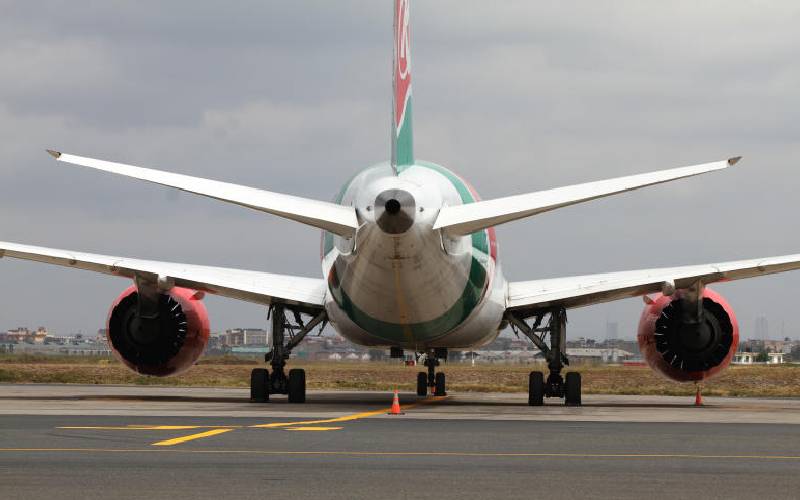
Kenya Airways (KQ) during the launch of the resumption of international flights at the Jomo Kenyatta International Airport (JKIA), Nairobi, on August 1, 2020. [Elvis Ogina, Standard]
A video clip on Kenya’s national carrier, Kenya Airways (KQ) has been doing the rounds. Ominously titled, 'Fall of The Pride', it has created a frisson of excitement in some and visceral fear in others. Tapping into the anger that is already palpable on account of a tanking economy, the creator of the clip has masterfully channeled it towards KQ as though the airline was a metonym for the entire country and all that is wrong with it.